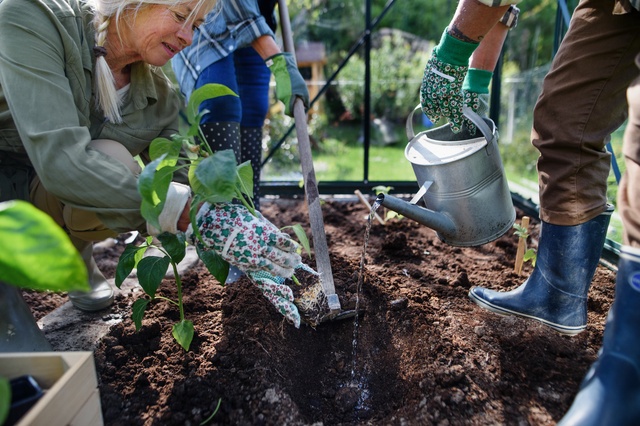How do you achieve social well-being?

Why is social well-being important?
Social well-being is a work-in-progress concept for most of us. There are many components of social well-being. Here are several that show its importance in our lives.
Positive Relationships:
- Strong and supportive connections provide emotional support, encouragement and acceptance.
- Feeling valued and respected improves your sense of belonging and self-worth.
- Effective communication is essential for building and maintaining strong relationships.
Conflict Resolution Skills:
- Knowing how to resolve conflict constructively is crucial for navigating interpersonal challenges.
Social Participation:
- Participating in clubs and organizations helps you connect with others who share similar interests. You can also do volunteer work or other social activities.
Contribution and Service:
- Volunteering your time and talents to help others can create a sense of purpose and well-being.
- Contributing to something larger than yourself can bring meaning and fulfillment to you.
- Living in a community with values that promote social inclusion and connection can create a supportive environment.
Resilience and Coping Skills:
- Being able to bounce back from setbacks and cope with stress can help you maintain social connections even during difficult times.
Values and Beliefs:
- Living according to your values and beliefs can provide a sense of integrity and well-being.
- For many people, faith and spirituality can be a source of comfort, connection and meaning.
The components of social well-being are interconnected and work together. You can cultivate a fulfilling and connected life by focusing on different aspects of social well-being. Then take steps to strengthen them.

What are some facts about social wellness?
It’s important to note that social well-being is different for everyone. It can be influenced by culture, our life experiences and how we choose to behave as humans. The indicators of social well-being vary from one person to the next.
Here are some facts about social wellness:
- As social creatures, humans are wired to connect with others. Studies show that strong social connections have many benefits for our physical and mental health.
- Strong social connections can boost your immune system. Research suggests that having close relationships can help you fight off illness. It can help you recover from injuries faster too.
- Loneliness and social isolation are major risk factors for disease. A study by Brigham Young University found that social isolation is harmful to your health. It is comparable to smoking 15 cigarettes a day.
- Social support can help you live longer. A study published in the Journal of the American Geriatrics Society found that people with strong social ties are more likely to live longer. Those who are more isolated have a shorter life expectancy.
- Belonging to a social group can improve your mental well-being. Participating in clubs, religious groups or other social activities can reduce stress. It can also lessen anxiety and depression.
We can all contribute to a more socially connected world. By being kind, compassionate and inclusive, we can create a more welcoming environment for everyone.

What is an example of social well-being?
The definition of social well-being starts with feeling a sense of belonging and purpose. Depending on where you live, one example may be to start a community garden project.
A community garden project can help start and maintain healthy relationships. It connects us with others who have similar interests. Other ways that community gardens can help nurture social well-being include:
- Building Connections: Community gardens provide a platform for people to come together and interact. Sharing gardening tips or simply enjoying each other's company helps build connections. It also fosters a sense of belonging.
- Promoting Physical Activity: Gardening involves physical activity. This has many benefits for both physical and mental health. This shared activity can be a fun and rewarding way to spend time with others. It can also improve well-being.
- Enhancing Mental Health: Working outdoors and taking care of plants can improve mood. It can also reduce stress and help you deal with anxiety. Plus, you’ll feel proud when you grow your own food in your neighborhood.
There are many emotional well-being examples that can help improve your social health. A community garden is only one way that social well-being can be achieved in our daily lives. Projects like this can improve our adult social well-being. They foster connections, promote physical activity and enhance mental health.
RECAP: Social wellness is a journey. It takes time and intent to achieve social well-being.
Need help getting started? At Allina Health, All Together Better means you’re not alone. Hello4Health isan Allina Health initiative. It offers online resources and activities. These help adults improve their social connections and mental wellness. It also helps build community resiliency.
